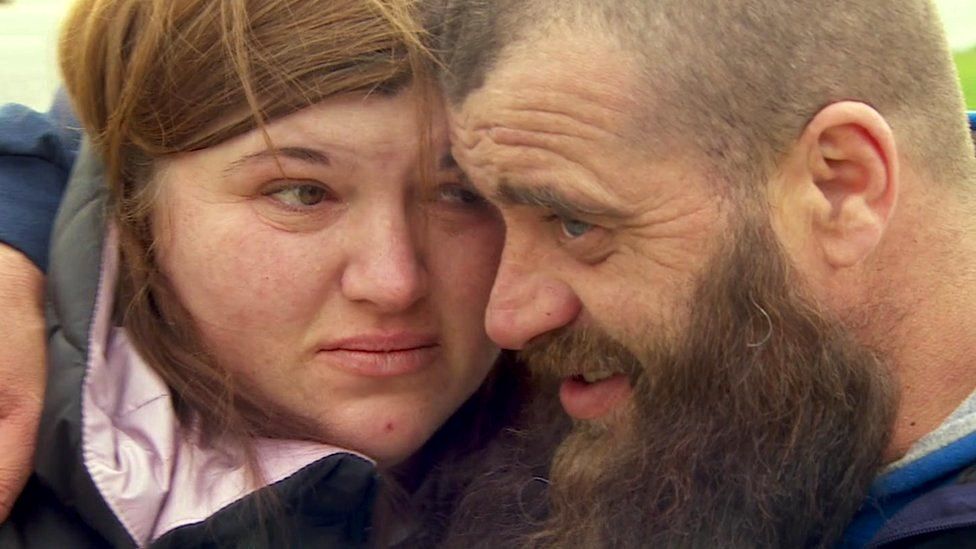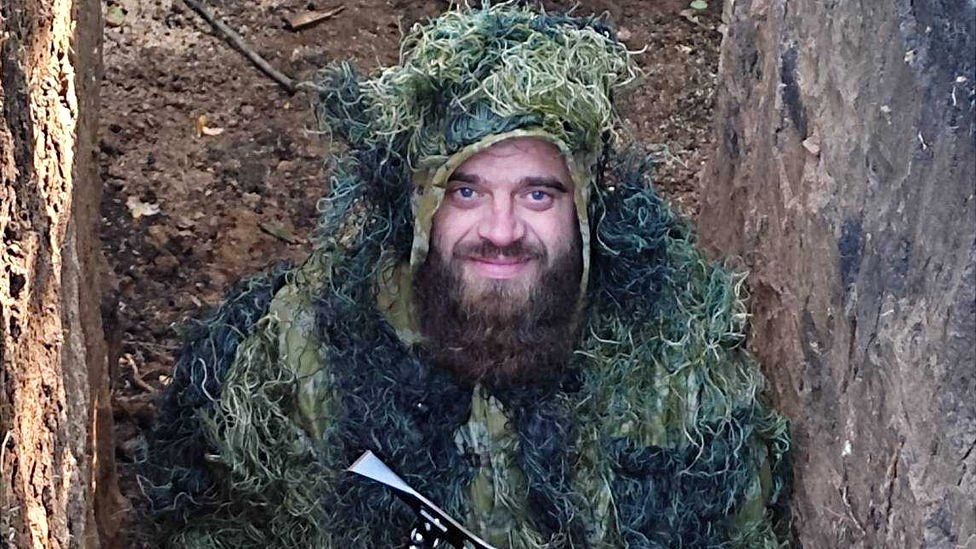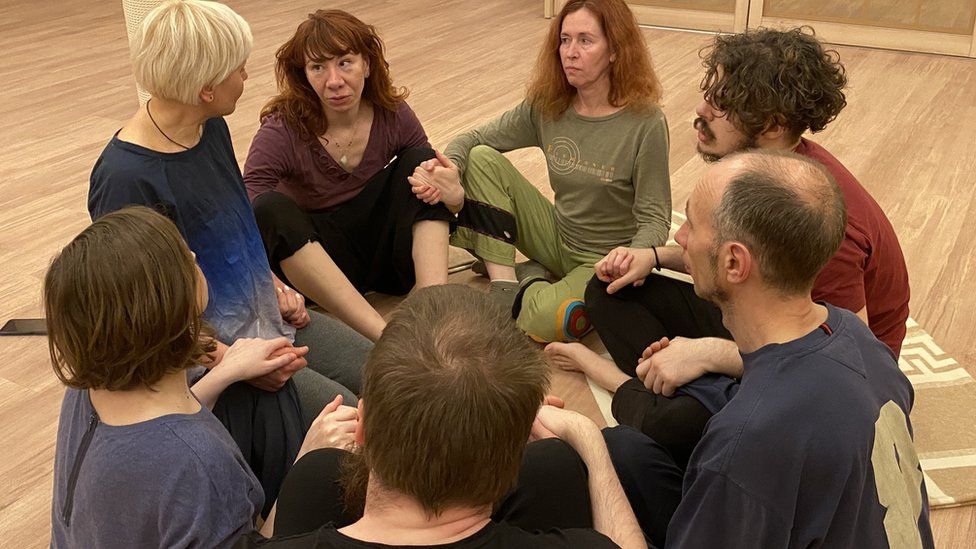The psychological scars of Russia’s invasion are starting to show in Ukraine, at the front and at home.

“When you go to bed you see it; the comrades I lost, how I pulled them out with no limbs, how they died in my arms.
“This will stay with us for the rest of our lives.”
There is a darkness etched across Dmytro’s eyes – the eyes of a soldier recently returned from the front line.
After 15 months of fighting in the Donetsk region, Dmytro tightly holds his wife Tetiana’s hand in a recovery centre in north-eastern Ukraine.
She travelled 600 miles (966km) to this innocuous collection of buildings in the Kharkiv region after Dmytro was granted a week off.
Last year, around 2,000 troops came here for counselling and physiotherapy. Organisers admit this is just respite, not rehabilitation. Most head back to the front.
Staff at the centre say Ukraine is trying to keep its soldiers well enough to “stand until the end”.
“We’ll suffer the consequences for the rest of our lives,” says Dmytro as his eyes moisten.

Dmytro has promised to not shave his beard until the war is over. Its length reflects the 400-plus days since Russia’s full-scale invasion.
Tetiana thinks her husband is different beyond his appearance, too.
“He has changed a lot,” she says. “He has proved he’s capable of many things; protecting us and standing up for Ukraine. He’s shown he can do a lot.”
We chat to Pavlo, who is taking a break from being a drone pilot, in the leafy gardens. He struggles to sleep.
“Sometimes, you don’t know what to talk about with old friends because old interests change,” he says. “I don’t want to share all that I’ve seen with them.
“I am no longer interested in things we used to have in common. Something has changed, even snapped.”
Pavlo’s role means he is a target, and exposed to horrors most don’t have to witness.
Sometimes, you don’t know what to talk about with old friends… Something has changed, even snapped
It’s left him in a psychological no man’s land.
“Every day that I’m on the front line, I want to go home,” he says. “But when I come home, I get this strange feeling of wanting to go back to my comrades.
“It’s a very strange feeling, of being out of place.”
Managers at this recovery centre believe it will take up to 20 years to mentally rehabilitate Ukraine’s population after this war.
Yana Ukrayinska, from the country’s health ministry, is trying to get ahead of such forecasts by planning to provide mental health support for “every one in two citizens”.
“We’re preparing our system to provide quality psychological aid for about 15 million people,” she tells us. “We hope it will not be needed, but we’re convinced we should be ready.”
This is, after all, a Russian invasion which affects every Ukrainian. Millions have been forced from their homes and separated from loved ones, suffering violence and losing all their belongings.
Experts say the most common mental illnesses are stress or anxiety disorders, but it’s thought post-traumatic stress disorder (PTSD) will take a real hold in the coming years.
Ukraine’s First Lady Olena Zelenska recently launched a nationwide mental health programme, but there is still a shortage of therapists. It’s why the government’s emphasis is on self-care.
For a class of six in Kharkiv, that means body therapy. They take part in a session where they sit and share feelings, before exploring touch and movement with each other.

Inna comes here to take care of her own mental health, so she can help others as a therapist.
“It’s really important for me to stay in shape to have a resource that I can give to people,” she says.
Inna can also see how people have changed in her city since the start of the war.
“Nowadays, people live more in the present, they don’t postpone life for the future, and these are good changes, in my opinion.
“But there are also a lot of traumatic experiences, PTSD, and depression, which require the help of psychiatrists.”
A reminder of how the weight of this conflict isn’t contained to the trenches. People are connected to the war in countless ways, regardless of their location.
Additional reporting by Hanna Chornous, Rachael Thorn, Siobhan Leahy and Daria Sipigina